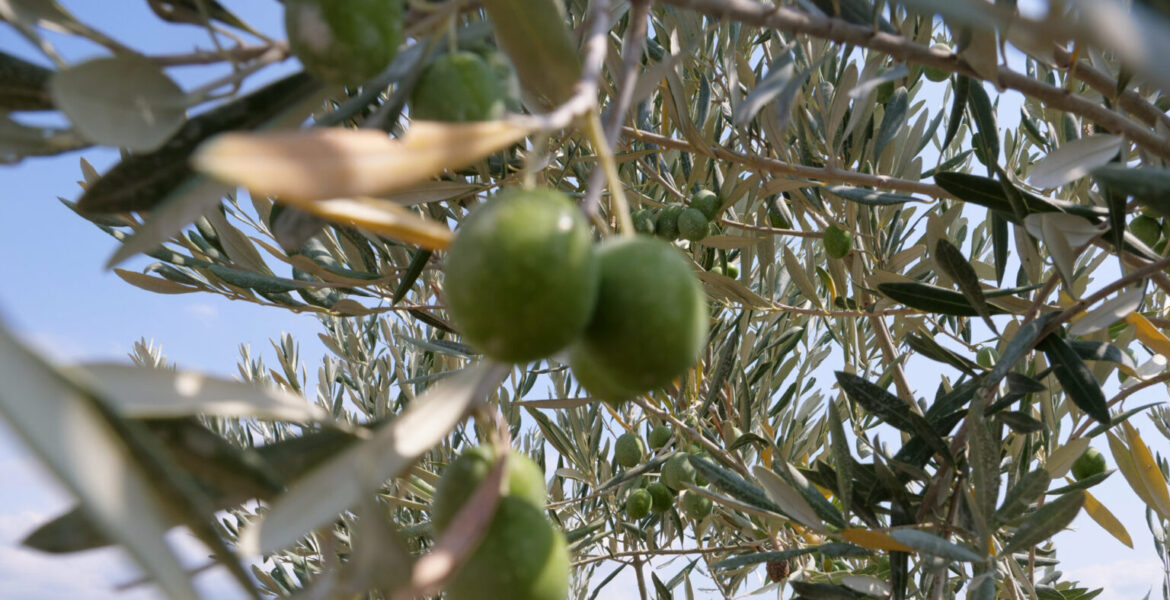The village of Rodia is on the outskirts of Olympus, just 20 kilometres from the centre of Larissa. There, the agronomist Egli Raptou has started an admirable effort to revive the family olive grove that had been abandoned for years.
With studies in agriculture and a master's degree in landscape architecture, Egli decided to return to the land of her ancestors and took on the challenge of reviving the olive grove and taking care of the abandoned pastures once tended by her grandparents.

The economic crisis in Greece in 2013 and images of abandoned olive groves motivated and challenged Egli. Inspired by traditional practices and equipped with knowledge of the most modern agricultural methods, she began a painstaking process of regeneration.
Together with her husband, also an agronomist, after first studying the soil and the characteristics of the microclimate, they examined the condition of the trees and attempted a holistic and sustainable plan that combined the restoration of the old trees with the planting of new ones.

The old olive grove, which covers 80 acres, was of the Amfissa variety. To tame the wild olives, specimens from nearby trees were grafted on them, while some were left intact to enhance biodiversity.
BIOELLAS certified the olive grove's organic cultivation, recognising Egli's quality and dedication to agriculture.
The new olive grove of approximately 60 acres was cultivated for the first time four years ago, with the koroneiki and arbekina varieties, and follows the standard of biodynamic agriculture with Demeter® certification.
It is the oldest organic farming system with a holistic, ecological, and ethical approach based on Rudolf Steiner's seven basic principles, established in 1924: soil fertility, healthy plants, animal welfare, biodiversity, food quality in a social context, and ecological responsibility.

Egli, with her dedication and persistence, brought life to a place that had almost been forgotten. By rejuvenating the existing trees and planting new ones, she ensured that the olive grove would continue producing for many generations.
"This land was cultivated by my grandparents without being the main activity. The next generation didn't get involved, so there was no continuity and consistency in the development of the crop," explained the agronomist.
The organic estate produces about 10 tons of extra virgin olive oil, while the biodynamic olive grove, due to the young plant trees, is not yet able to produce sufficient fruit. As the trees grow stronger, KONDEA is considering setting up a small standardisation unit so that it has full quality control.
For more information, visit www.kondea.gr
Yianna Balafouti is a columnist for Cantina. Translated by Paul Antonopoulos.
READ MORE: Greece: A Timeless Gem in the Mediterranean.


